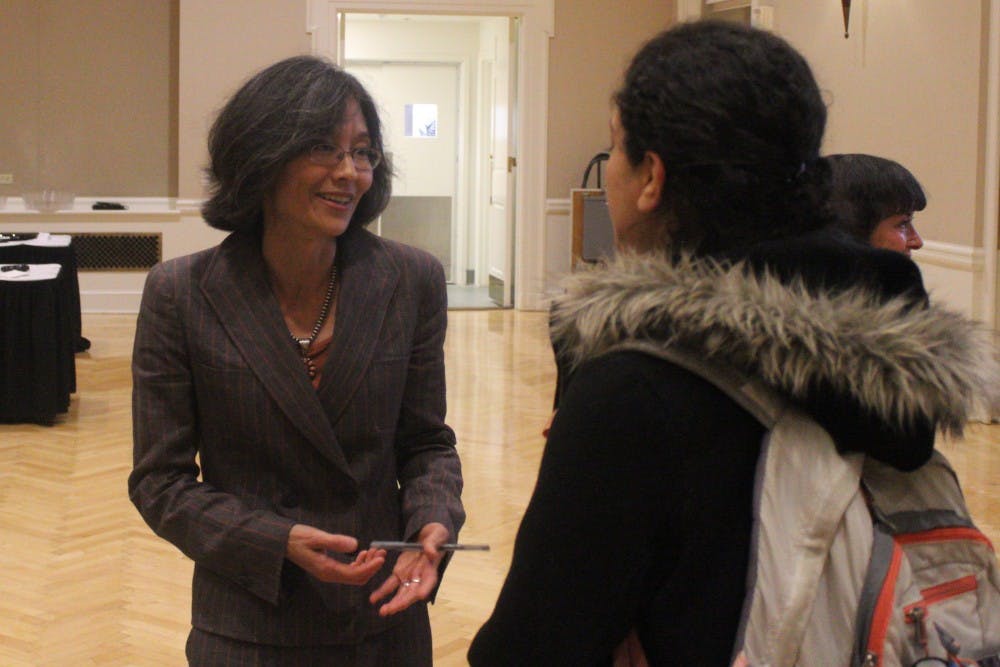The Center for Global Health hosted its 2018 Center for Global Health Research Symposium on Tuesday, Nov. 6, in the Newcomb Ballroom. Sonya Shin, an Associate Physician in the Division of Global Health Equity, and Associate Professor at Harvard Medical School, was the keynote speaker. This annual event had around 50 to 75 attendees and was open for everyone, with attendees ranging from University students and their families, to high school students from Monticello High School.
Prior to the keynote speech, the event began with an opening reception and poster symposium displaying CGH scholars’ research projects. Topics such as mental illness stigma, alcohol-related sexual risk, traditional healing and more were researched in diverse global settings, including Nigeria, Rwanda, Guatemala, Peru and Senegal.
Fourth-year Engineering student Olivia Jones and third-year College student Merly Konathapally presented their research project on the effectiveness of a water filter in South African homes. The team looked at whether the filters reduced certain pathogens in the water, if they impacted child growth and how often they were used in homes.
Inspired by the previous year’s poster symposium, third-year College student Simran Budhwar teamed up with fourth-year Nursing student William Burris to research the rates of sepsis infection in Intensive Care Units in Rwanda.
The evening transitioned to the keynote address, as Dr. Sonya Shin discussed her work with Partners in Health in Peru and the Navajo Nation. Shin opened her presentation by discussing the concept of accompaniment — to work alongside a patient or community but on the terms of that individual or community.
“I find this word very useful, because it … upholds this concept of solidarity, and it puts the wisdom in the patient, or the community member,” Shin said. “It helps me have pause, and reflect on my own role as an accompagnateur, in that it’s not really about what I think is the answer. It’s [about] always being self-reflective about whether we’re truly listening to the community or patient we’re working with.”
Shin then shared her own personal reflection throughout the years, elaborating that the language she and other healthcare volunteers use to describe disadvantaged communities is important to consider when working towards global health equity.
“I learned from my Navajo colleague that being talked about in terms like poverty, which is a term Partners in Health uses all the time, doesn’t feel good,” Shin said, “[In] trying to create an understanding of the disparities that exist, but in a language that we use, sometimes we can actually make it sound like the community members don’t actually have agency.”
Concluding with a challenge to the audience, Shin addressed the Partners in Health mission statement: “We seek to catalyze this transformation within our lifetime.”
“If we can shift just the culture in a community within one generation … maybe it is worth being a little unrealistic in trying to achieve really catalytic change,” Shin said.
A full video of Shin’s talk on community accompaniment, and her experiences in Lima, Peru, and Navajo Nation in collaboration with Partners in Health, as well as all the posters displayed at the CGH Scholars Poster Symposium, are available through the CGH.







